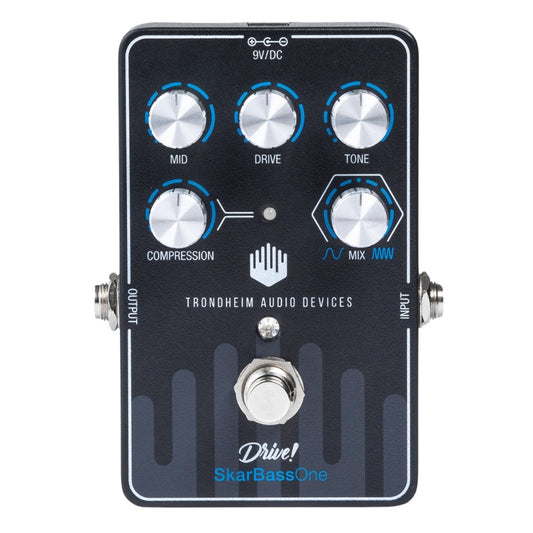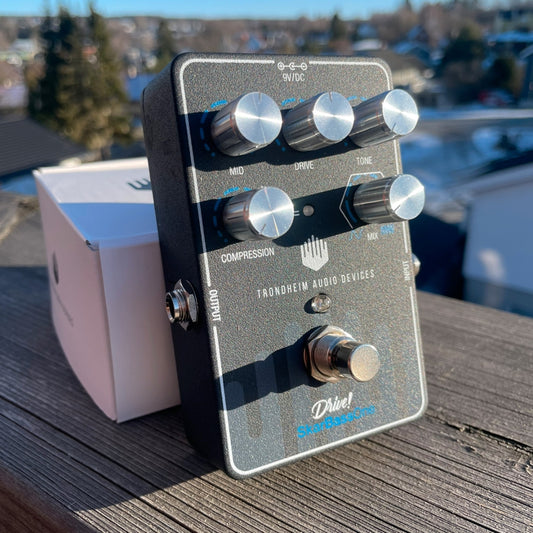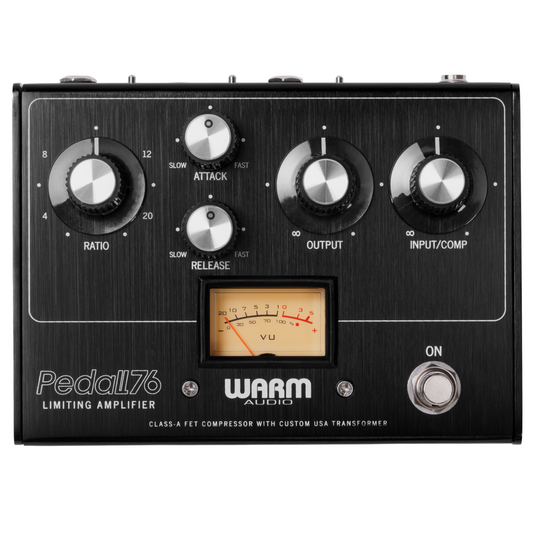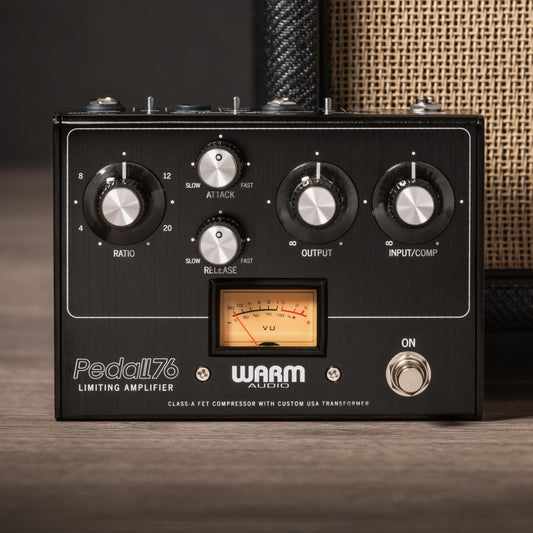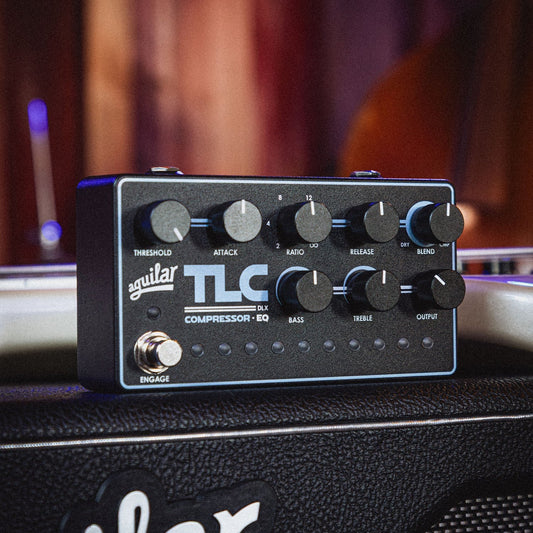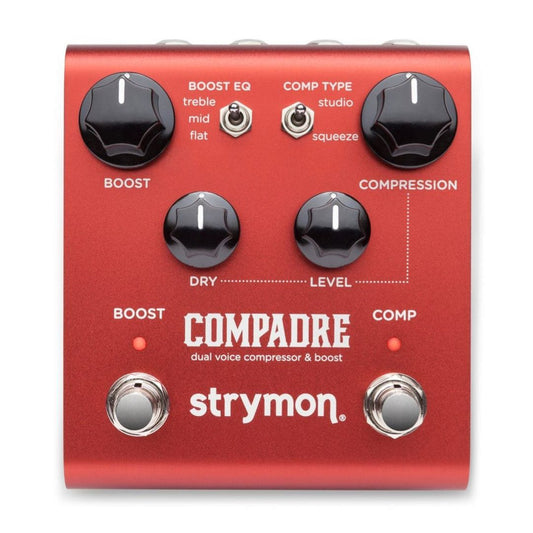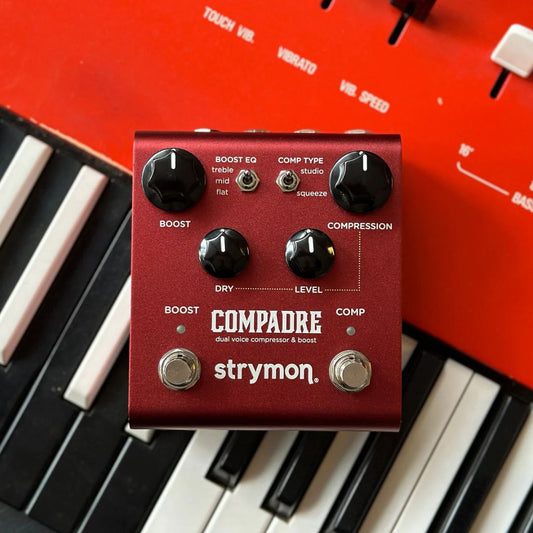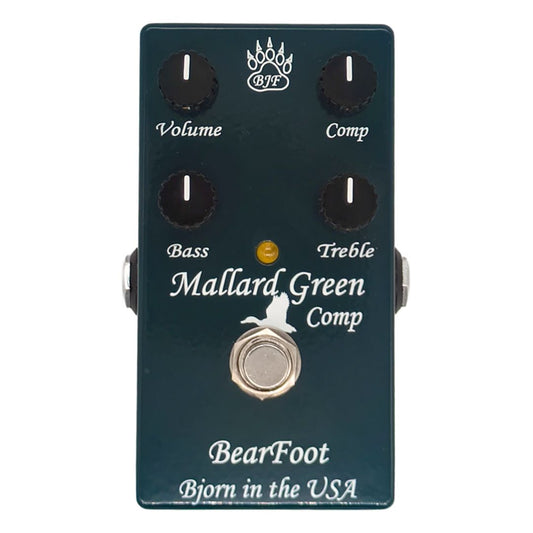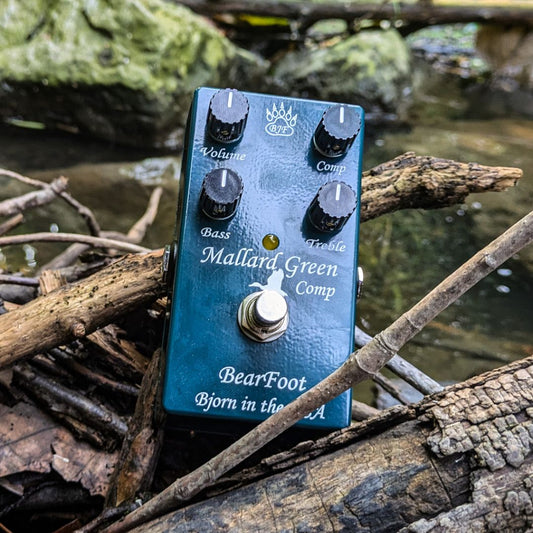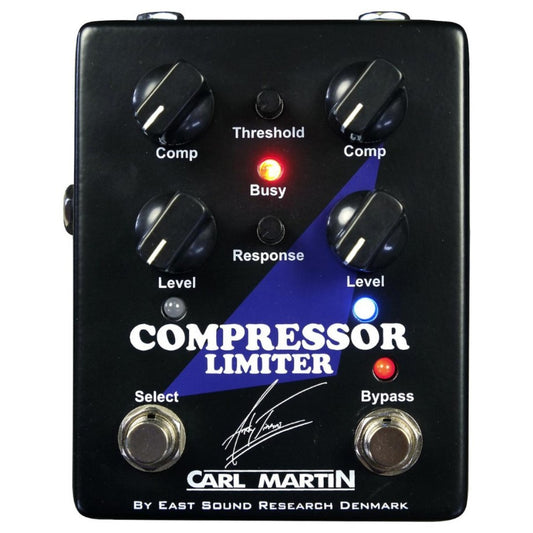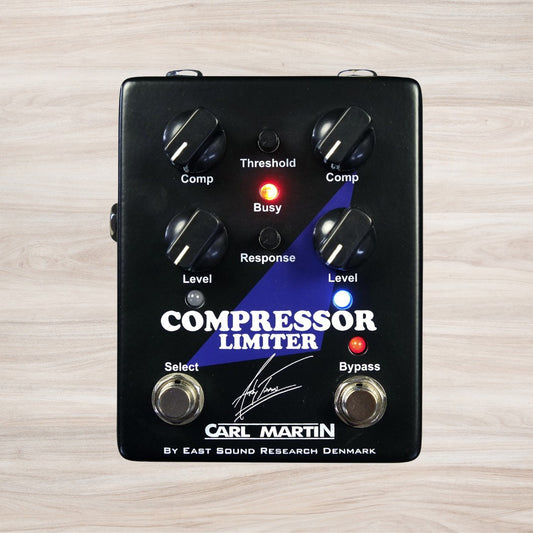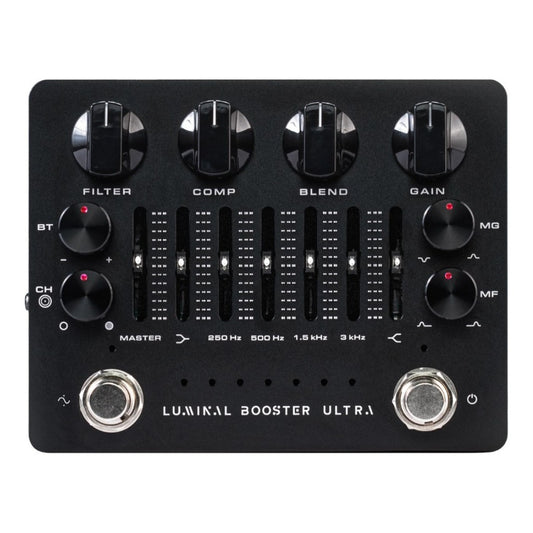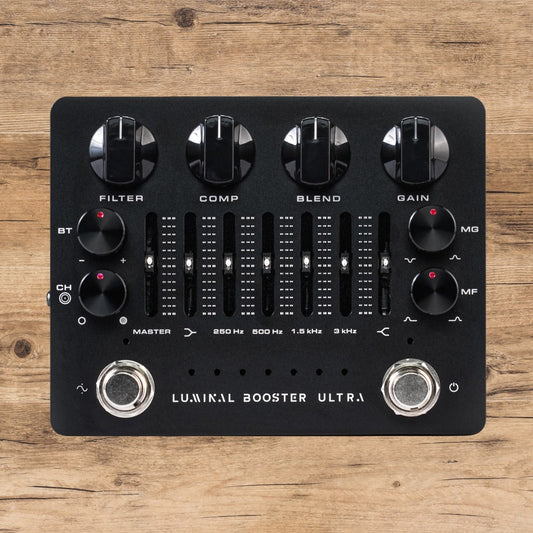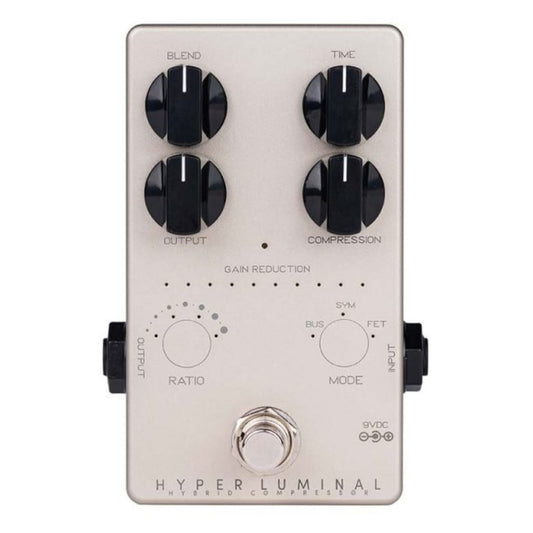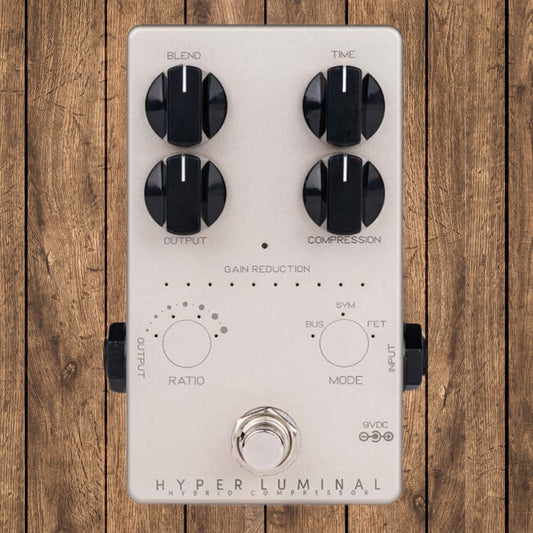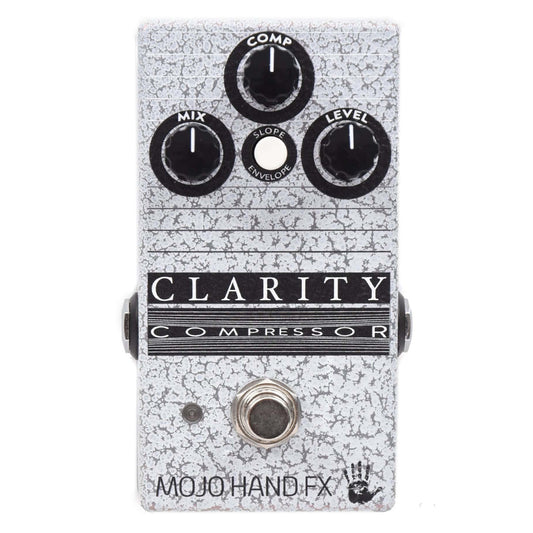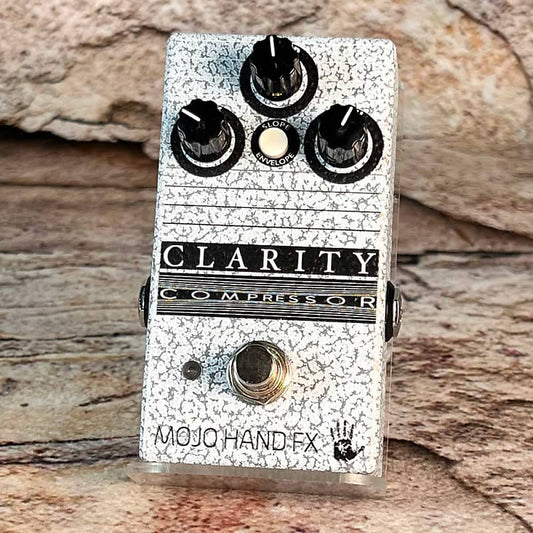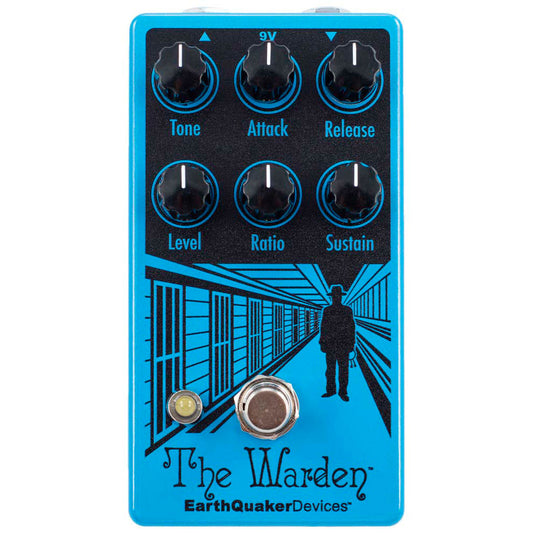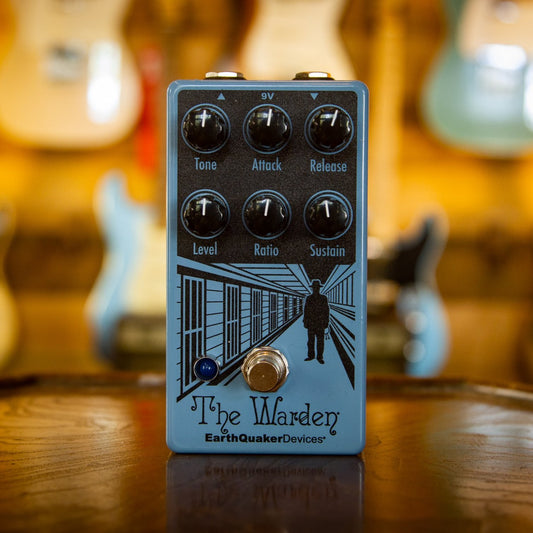Compression Pedals
-
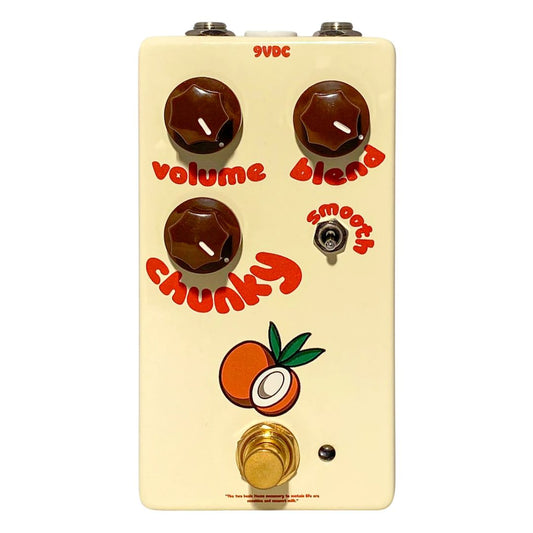
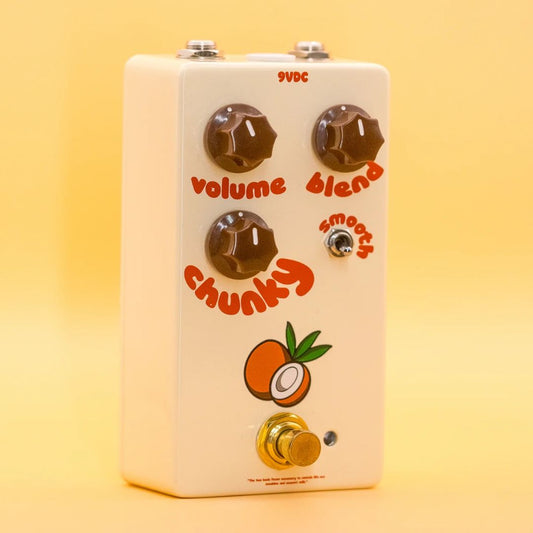 Sold out
Sold outFruitFX Coconut Compressor Pedal
5 reviewsRegular price From $119.99Regular priceUnit price / per$129.99Sale price From $119.99Sold out -
Trondheim Audio Devices Skarbassone
No reviewsRegular price $249.00Regular priceUnit price / per$249.00Sale price $249.00 -
Warm Audio Pedal76 Compressor Pedal
1 reviewRegular price $279.00Regular priceUnit price / per$279.00Sale price $279.00 -
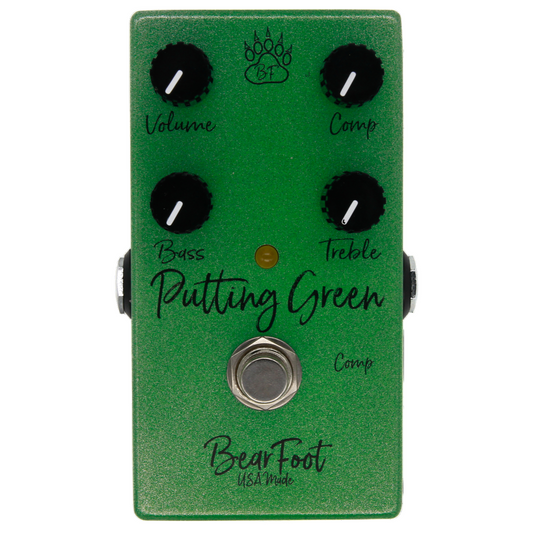
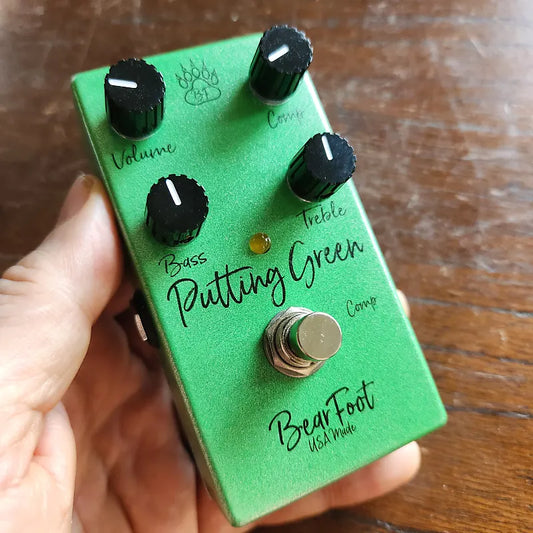 Sold out
Sold outBearFoot FX Putting Green Pedal
No reviewsRegular price $179.00Regular priceUnit price / per -
Aguilar TLC Compressor EQ DLX Bass Pedal
No reviewsRegular price $329.99Regular priceUnit price / per$461.99Sale price $329.99$132 off -
Strymon Compadre Compressor & Boost Pedal
No reviewsRegular price $299.00Regular priceUnit price / per -
BearFoot FX Mallard Green Compressor Pedal
No reviewsRegular price $179.00Regular priceUnit price / per -
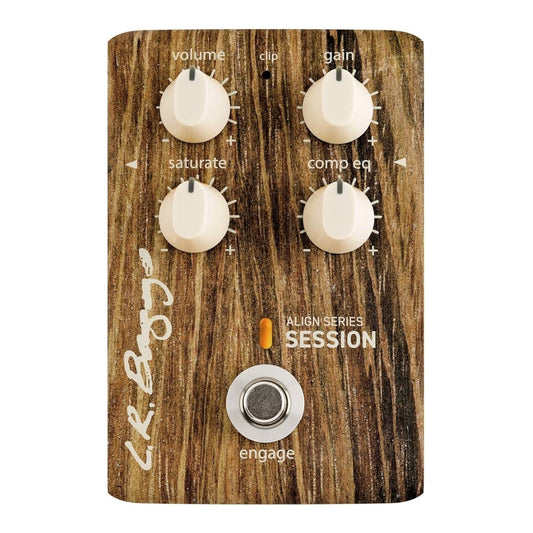
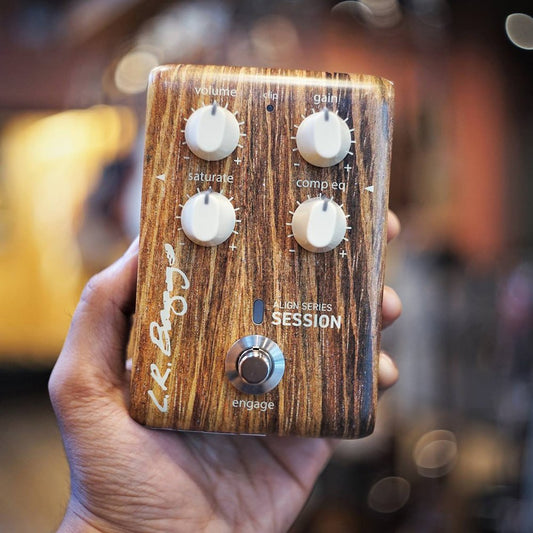 Sold out
Sold outLR Baggs Align Series Session Pedal
No reviewsRegular price $199.00Regular priceUnit price / per -
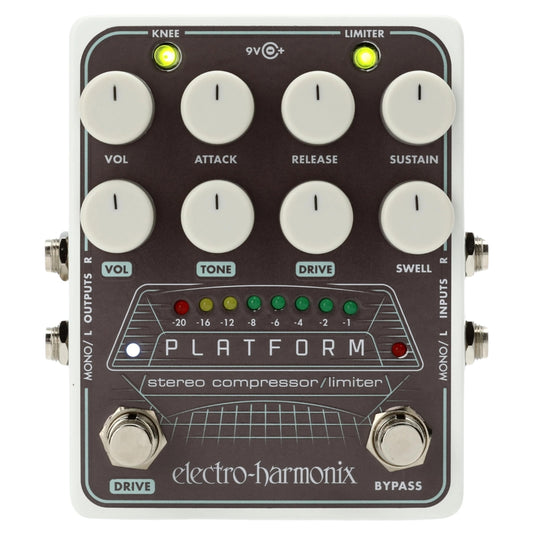
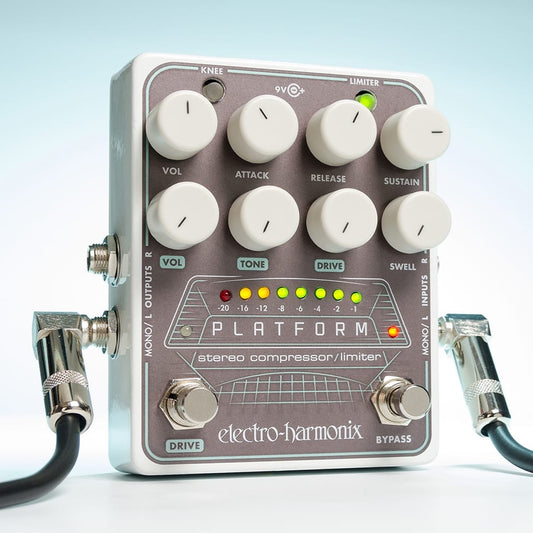 Sold out
Sold outElectro-Harmonix Platform Pedal
No reviewsRegular price $194.10Regular priceUnit price / per$258.20Sale price $194.10Sold out -
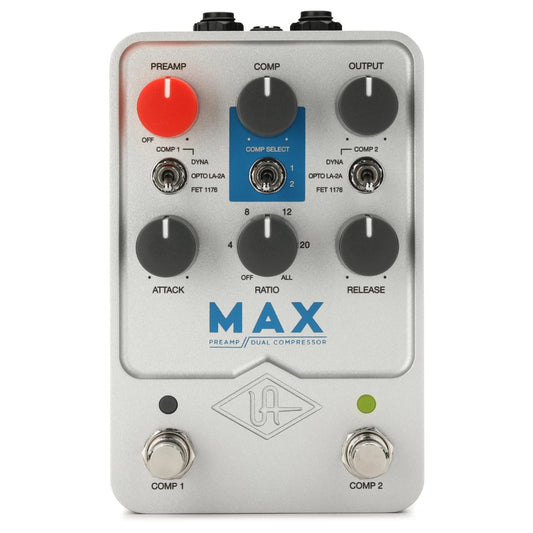
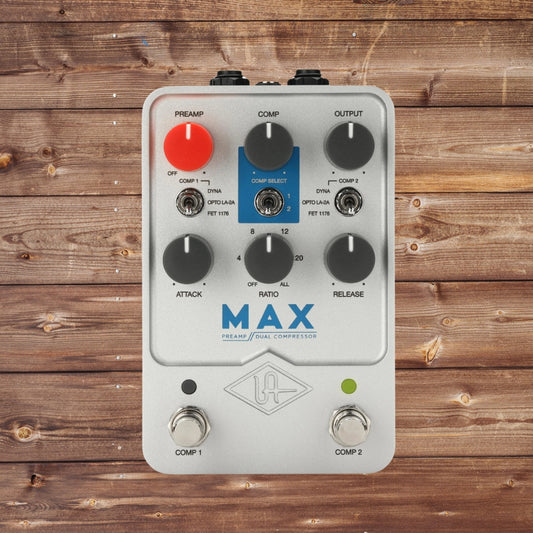 Sold out
Sold outUniversal Audio Max Pedal
No reviewsRegular price $399.00Regular priceUnit price / per$499.00Sale price $399.00Sold out -
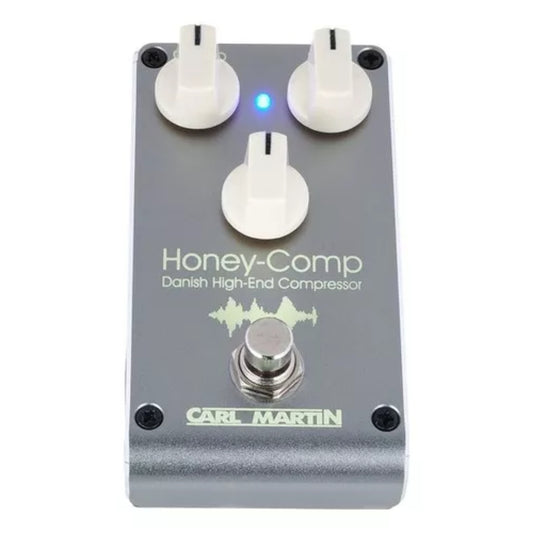
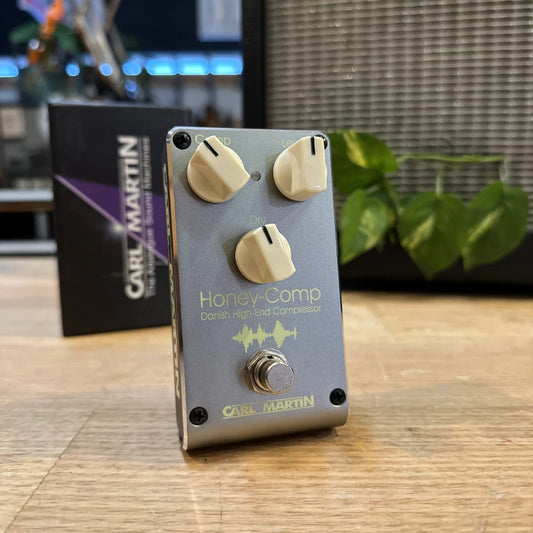 Sold out
Sold outCarl Martin Honey Comp Pedal
No reviewsRegular price $189.00Regular priceUnit price / per$236.00Sale price $189.00Sold out -
Carl Martin Andy Timmons Signature Compressor Pedal
No reviewsRegular price $299.00Regular priceUnit price / per$374.00Sale price $299.00Sold out -
Darkglass Luminal Booster Ultra Bass Pedal
No reviewsRegular price $499.99Regular priceUnit price / per$729.99Sale price $499.99$230 off -
Darkglass Hyper Luminal Bass Compressor Pedal
No reviewsRegular price $349.99Regular priceUnit price / per$489.99Sale price $349.99$140 off -
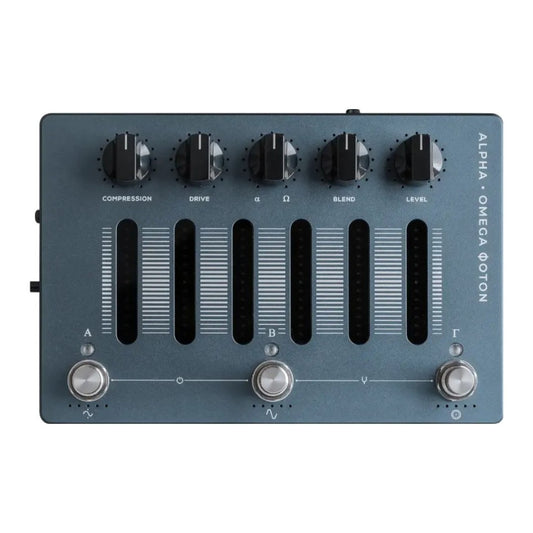
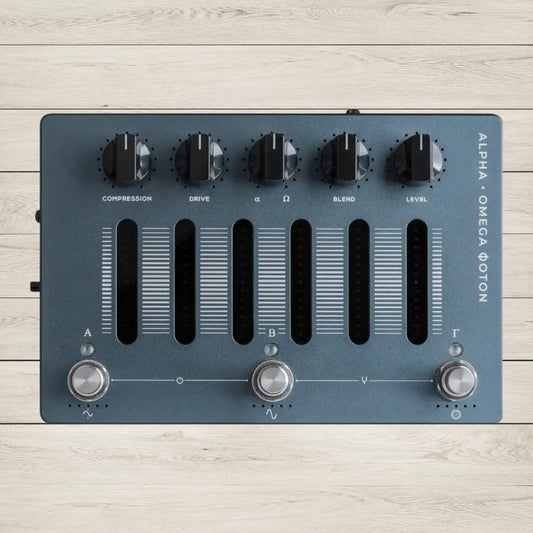 $260 off
$260 offDarkglass Alpha Omega Photon Pedal
No reviewsRegular price $649.99Regular priceUnit price / per$909.99Sale price $649.99$260 off -
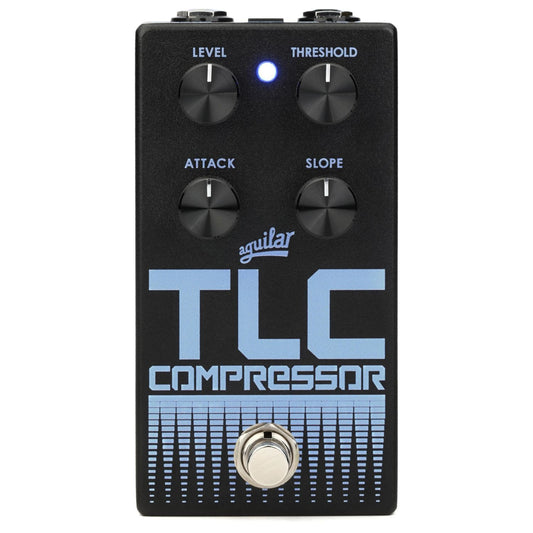
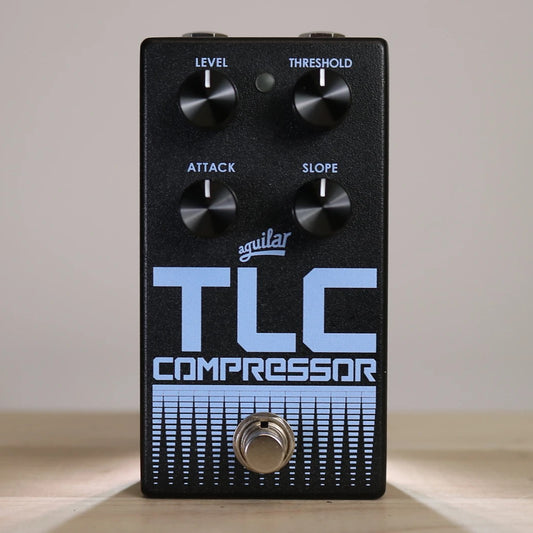 $85 off
$85 offAguilar TLC Compressor Pedal V2
No reviewsRegular price $249.99Regular priceUnit price / per$334.99Sale price $249.99$85 off -
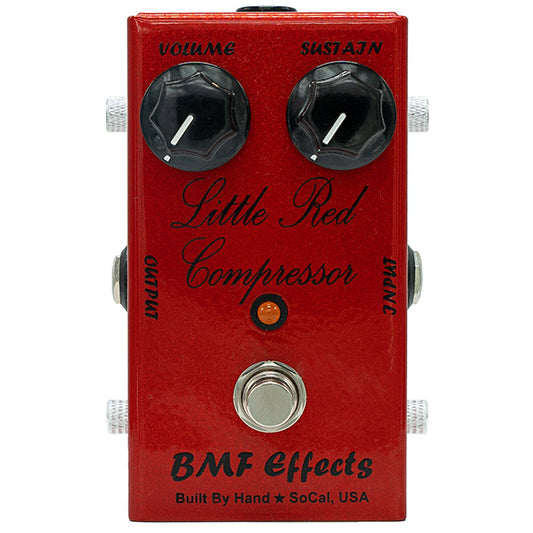
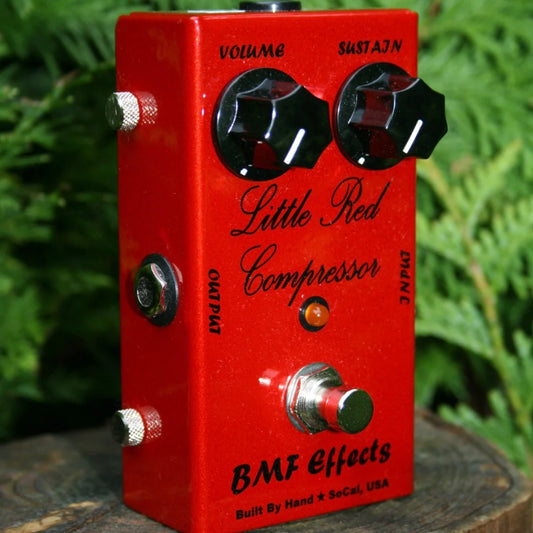 $30.99 off
$30.99 offBMF Effects Little Red Compressor Pedal
No reviewsRegular price $219.00Regular priceUnit price / per$249.99Sale price $219.00$30.99 off -
Mojo Hand FX Clarity Pedal
No reviewsRegular price $139.00Regular priceUnit price / per -
The Warden EarthQuaker Devices Pedal V2
No reviewsRegular price $199.00Regular priceUnit price / per -
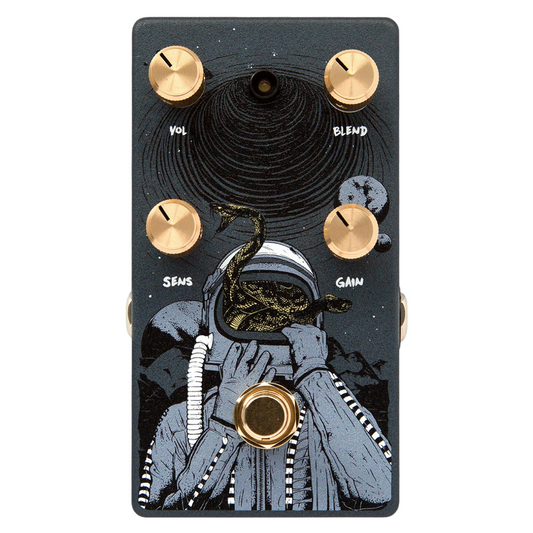
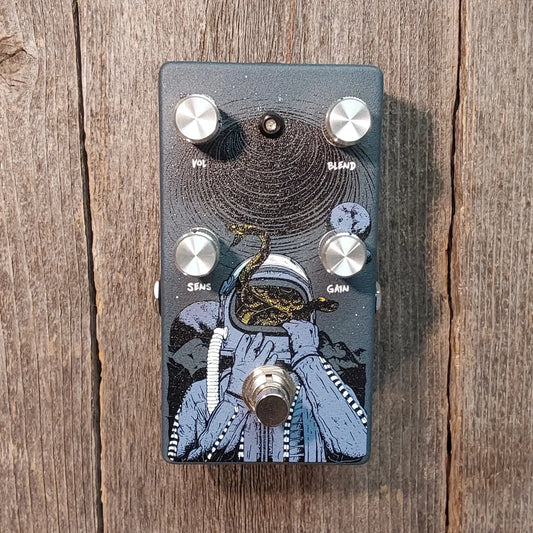 Sold out
Sold outGround Control Audio Serpens Pedal
No reviewsRegular price $189.00Regular priceUnit price / per
Collection: Compression Pedals
What is a Compression Pedal?
If you’re looking for a tool that gives you a consistent guitar output level, you should look into having a compression pedal on your pedalboard.
Compression pedals, also known as compressors, are tools to control the dynamic range of an instrument. These work by compressing volume spikes while boosting the softer ones to make the output more balanced and consistent. It is effective in tightening the tone, enhancing sustain, and making each note clearer, which helps ensure that the playing sounds polished.
Modern compressors feature controls for tweaking the compression, output level, attack, and release. This gives the musician more control over the type of compression they need for their performance.
History of the Compression Pedal
The roots of the compression pedal date back to the late 1950s and early 1960s, starting in the broader history of audio signal processing. Studio engineers had huge rack-mounted compressors that managed the dynamic range of recordings.
By the early 1970s, the desire of musicians to have more control over their sound dynamics led to the creation of compact and standalone compression pedals. One of the earliest models, the Dan Armstrong Orange Squeezer, became popular as it helped musicians achieve a smoother and more consistent tone while performing.
Eventually, brands like MXR and Ross released their compression pedals that became essential gear for guitarists seeking better control over their guitar tones. Throughout the decades, compression pedals with upgraded circuitry and new features have been invented, making the effect pedal a staple in studio recordings and live performances.
Who uses Compression Pedals?
The usefulness of a compression pedal is appreciated by musicians across various genres such as pop, jazz, rock, funk, and country. This is why many musicians rely on the effect pedal to achieve their desired tone.
Guitarists like Mark Knopfler and Niles Rodgers helped popularize the effect as it has become a need to emit their signature tones. They use it to achieve smooth, consistent, and clean guitar tones. Country artists like Brent Mason also use compression to guarantee that their twangy tones remain upfront.
Bassists often use compressors to get punchy and clear tones that allow their basslines to stand out in a performance. Even session musicians and studio engineers rely on compression pedals to add smoothness and articulation during live concerts and studio recordings.
Why You Need a Compression Pedal
Having a compression pedal on your pedalboard ensures that your guitar playing sounds balanced, dynamic, and polished, no matter the situation. The effect’s ability to sculpt your guitar tone to have an extra edge is enough of a reason to have it in your arsenal.
You can get professional-grade smoothness and sustain during your solos and riffs with a compressor on. Compression pedals can also add warmth and punch to your rhythm parts, making your performance feel more engaging. Plus, the effect can help protect your amp and speakers from potential damage from unexpected harsh peaks.
Whether you’re a touring musician or a beginner hobbyist, the control that a compression pedal gives you makes it a versatile tool that can take your overall tone to a different level.
Where to Buy Compression Pedals
You can purchase the best compression pedals here at DeathCloud. We carry a huge selection of compressors from today’s leading pedal brands. Whether you’re looking for a compression pedal for studio recordings or you need a backup for your live gigs, we’ll help you find the best one that suits your rig.



